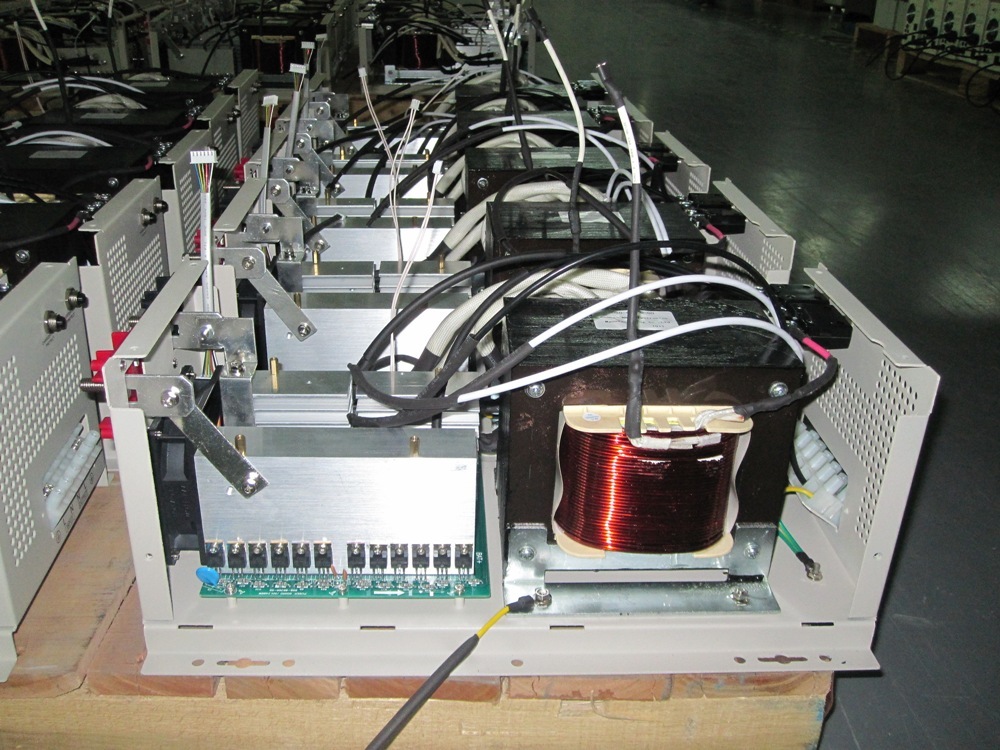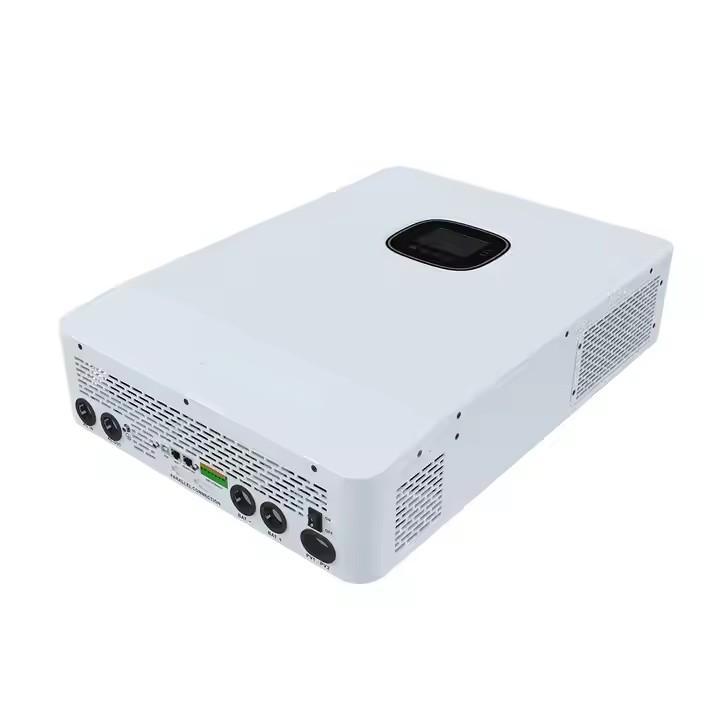Low Frequency Inverter Or High Frequency Inverter,how to choose?
Jun 06,2025
Firstly lets talk what Inverter is .
An inverter is a device that converts direct current (DC) into alternating current (AC) to meet the power demands of AC loads. Based on their topology, inverters can be categorized into high-frequency inverters and low-frequency inverters.
Low-Frequency Inverter
A Low-frequency inverter directly converts DC into low-voltage AC at line frequency, which is then stepped up to 220V, 50Hz AC through a low-frequency transformer for load use.
Its advantages include a simple structure, as various protection functions can be implemented at lower voltages. Due to the presence of a low-frequency transformer between the inverter and the load, it operates stably and reliably, with strong overload capacity and resistance to power surges. Additionally, it effectively suppresses high-order harmonics in the waveform. However, low-frequency transformers are bulky, expensive, and less efficient. Small-scale low-frequency inverters currently available typically have a rated load efficiency of no more than 90%. Moreover, since the core loss of the transformer remains nearly constant under both full and light loads, the no-load loss during light-load operation is significant, further reducing efficiency.

High-Frequency Inverter
A high-frequency inverter first utilizes high-frequency DC/DC conversion technology to transform low-voltage DC into high-frequency, low-voltage AC. This is then stepped up via a high-frequency transformer before being rectified and filtered into high-voltage DC, typically above 300V. Finally, a low-frequency inverter circuit converts it into 120V or 220V AC for powering loads.

Weight Comparison Between High-Frequency and low-frequency Inverters
For inverters of the same power rating, low-frequency inverters are significantly heavier than high-frequency inverters. High-frequency inverters are compact, lightweight, and efficient, with low no-load losses. However, they cannot handle full inductive loads and have weaker overload capabilities.
Since high-frequency inverters use compact and lightweight high-frequency magnetic core materials, they achieve much higher power density, resulting in minimal no-load losses and improved efficiency. Typically, high-frequency inverters used in small to medium PV systems can reach peak conversion efficiencies exceeding 90%.
Working Principle Comparison
High-frequency inverters have more complex circuitry, usually consisting of an IGBT high-frequency rectifier, a battery converter, an inverter, and a bypass. The IGBT's switching—controlled by gate drive signals—operates at frequencies ranging from several kilohertz to tens or even hundreds of kilohertz, far exceeding those of low-frequency inverters, hence the name "high-frequency inverter."
low-frequency inverters are designed based on traditional analog circuit principles, comprising a thyristor (SCR) rectifier, an IGBT inverter, a bypass, and a low-frequency step-up isolation transformer. Since both the rectifier and transformer operate at the standard 50Hz line frequency, they are aptly named low-frequency inverters.
Conversion Efficiency Comparison
The low-frequency inverters are less efficient than high-frequency inverters. The latter replaces complex hardware analog circuits with microprocessor-controlled software algorithms, significantly reducing size while improving conversion efficiency.
Contact us should you want to have more information about how to choose the inverter.
OR should you in need of any quality low frequency inverter you contact us for free enquiry or inverter customization design.As a Professional inverter factory,ZLPOWER provides wide range types of inverters to meet your different project or requirements. ZLPOWER with 18 years manufacturing and suppling both low frequency and high frequency solar inverter manufacturer experience that provides the best solution in renewable energy systems.In shenzhen ZLPOWER is one of the the largest solar inverter manufacturers supported by skillful workers and experienced engineers experts in inverter manufacturing.Welcome to contact to have some more update technology information or solar inverter price.
Related products
More News
Subscribe
Check the latest news of our company anytime and anywhere.
Contact ZLPOWER

1-2 Floor, Building E, Liyukeng Industrial Zone, Beihuan Road, Shangwu Community,Shiyan Street, Bao'an District, Shenzhen,Guangdong, China









